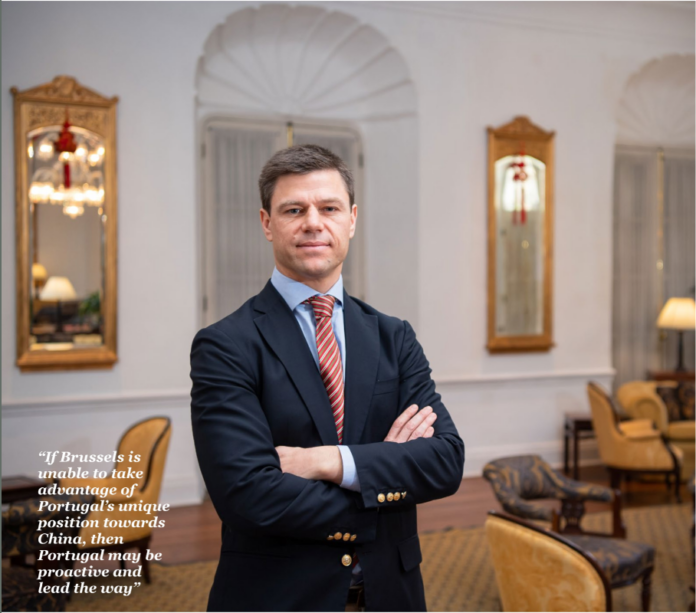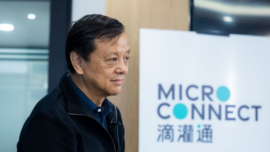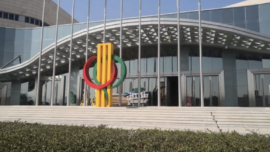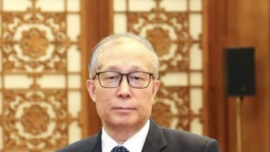Photos by Cheong Kam Ka
The Secretary General of the Portugal-China Chamber of Commerce and Industry (CCILC) believes that Ho Iat Seng’s visit to Lisbon provides an opportunity to rekindle ties. The Portuguese business community is eager to expand market access for its products to enter the market. Bernardo Mendia also hopes that the Chief Executive’s visit can shed light on the incentives and future business environment for Portuguese companies in Hengqin.
1 – How important is Ho Iat Seng’s visit to Portugal, and what are your expectations for it?
Bernardo Mendia – We attach great importance to this visit. In fact, Macau is part of the common history of Portugal and the People’s Republic of China, representing a strategic asset of the bilateral relationship between the two countries. One must not forget that, in the current context of geopolitical adjustments, which will dictate the economic future of the next generations, Europe and China need communication channels to ensure that their interests and needs are properly conveyed. It is no coincidence that Mr Ho Iat Seng is travelling to Portugal. In fact, no other Western country has as many factors of rapprochement and convergence with China as Portugal does. Consider the series of events that will take place during the 2023-24 biennium, following the nomination of a new Portuguese Ambassador to Beijing and a new Portuguese Consul-General to Macau: This year marks both the 510th anniversary of the arrival of Jorge Álvares in China and the tenth anniversary of the initiative for the development of connectivity infrastructures in Asia, Europe, and Africa, named the “New Silk Road”; and also the 20th anniversary of the Forum for Economic and Trade Cooperation Between China and the Portuguese-Speaking countries (Macau)
You mentioned the geopolitical tensions between China and the West. Could Brussels use Portugal to communicate more smoothly with Beijing through Macau?
B. M. – It is in Portugal’s interest and its responsibility to make Brussels aware of this. However, if Brussels is unable to take advantage of Portugal’s unique position towards China, then Portugal may take a proactive role and lead the way, leveraging its relationship of trust and mutual respect with China to extract benefits for its business community and the consequent economic development of the country. Therefore, we hope that during this trip, the Chief Executive will offer his influence and contacts in the central government to help Portugal obtain the necessary export permits for its products, in order to achieve a more equitable bilateral balance of payments. We also hope that Macau will provide more information on how it and Hengqin can serve as an effective platform for Portuguese companies to do business with China and Southeast Asia, similar to Hong Kong and Singapore in Asia or Ireland in Europe. This will be an opportunity to design and present specific incentives for Portuguese and Chinese companies to create joint ventures in the region and invest domestically or in Portuguese-speaking countries.
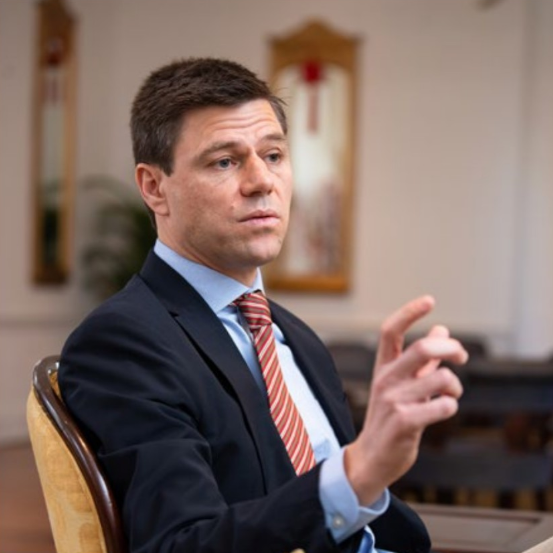
3 – How can Macau-China-Portugal business relations be taken to a higher level?
B. M. – I gave a couple of specific examples just now, but it is the Portuguese language, the remnants of the Lusophone culture in Macau, the institutional dialogue and trust between the peoples and governments of the two countries that make Portugal’s relationship with China, through Macau, unique in the world. Elevating the relationship entails more reciprocity, which can only be achieved if Portugal exports many more products to [mainland] China. For that we need the Chinese government to speed up export authorization procedures for Portuguese products. I believe Mr. Ho Iat Seng can contribute to this by exerting to his contacts and influence in the central Government.
“ We also hope that Macau will elaborate more on how Macau and Hengqin can be an effective platform for Portuguese companies to do business with China and Southeast Asia”
4 – What are CCILC’s plans for its Macau branch in 2023?
B. M. – Macau’s CCILC Delegation has a high degree of autonomy. Although, following the end of the pandemic, we have plans to increase cooperation, such as by organising business delegations from Portugal to Macau and from Macau and China to Portugal. The Delegation in Macau is now 31 years old, headed by Carlos Álvares, CEO of the centenary Banco Nacional Ultramarino – issuer of 50% of all Patacas in the territory –, and whose shareholder is the Portuguese bank Caixa Geral de Depósitos. The Board of Directors of the Delegation, as well as the Authority Bodies, include some of the most important companies in Macau and prestigious individuals of the Portuguese-Macanese community.
5 – CCILC will lead a business delegation to Macau, Hong Kong, and Guangzhou in June. What are the main goals and expectations for this visit?
B. M. – Following three years of closed borders, we felt the need to promote direct contact between businessmen and companies from Portugal and China, including the Special Administrative Regions. Face-to-face contact is fundamental to building trust, which is the most important factor in business and personal relations. On the other hand, the Greater Bay Area is a completely new concept, still unknown in Europe, and we want to introduce this new concept to the Portuguese business community, by touring the two Special Administrative Regions and Guangdong, as we are sure that many business opportunities will arise as the integration of this mega region deepens.
6 – What is your opinion of Hengqin’s joint development, and what opportunities do you see for Portuguese companies there?
B. M. – I am sure it will be a game changer for the region in a couple of years, as most Chinese mega projects are. For the time being, we are also looking forward to understanding what it entails, namely what kind of tax, legal, administrative system will be implemented, the incentives in place, attraction of talent policies, logistics infrastructure, etc. Hopefully, the Chief Executive and respective business delegation will clarify all of this during their visit to Portugal.





